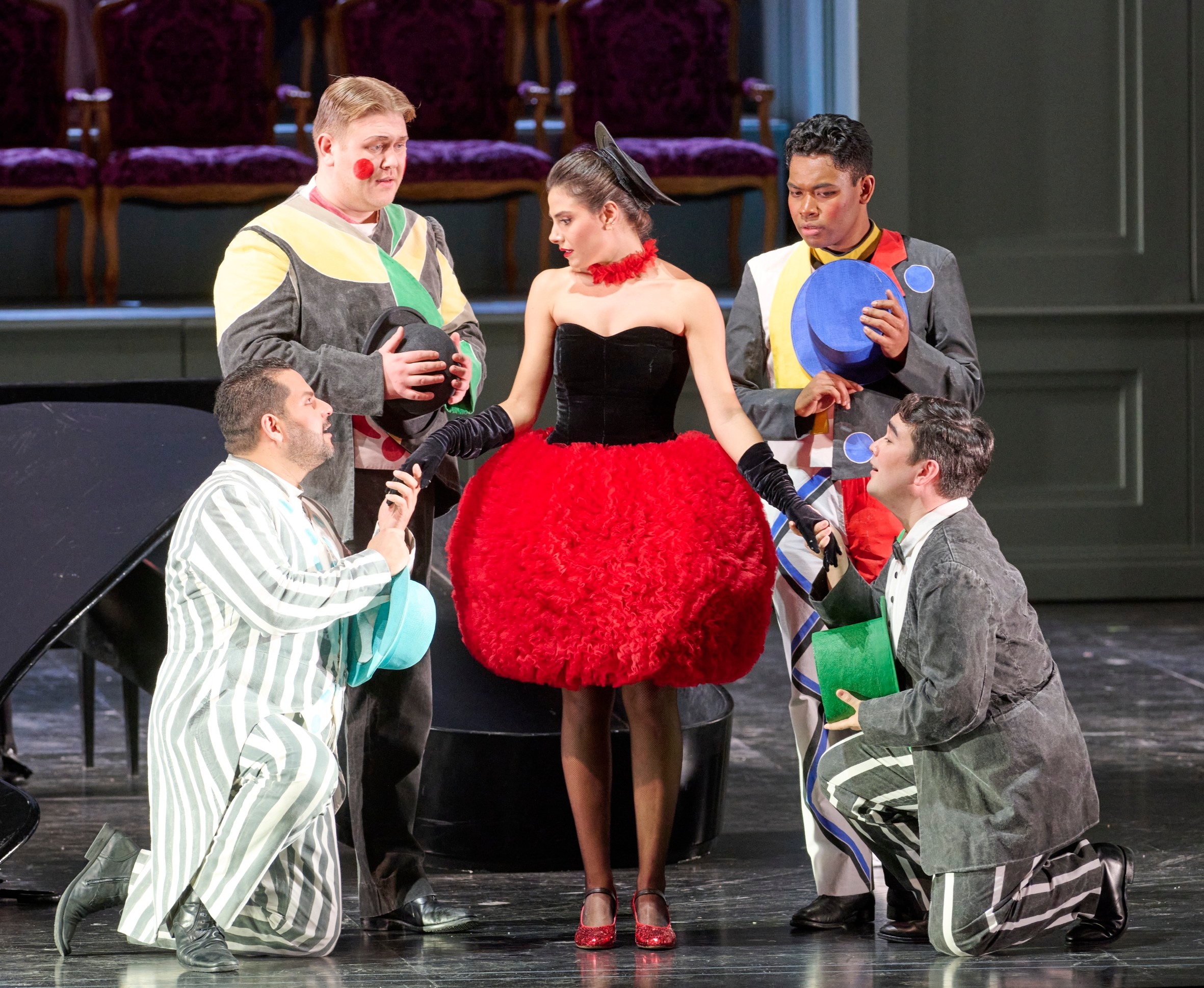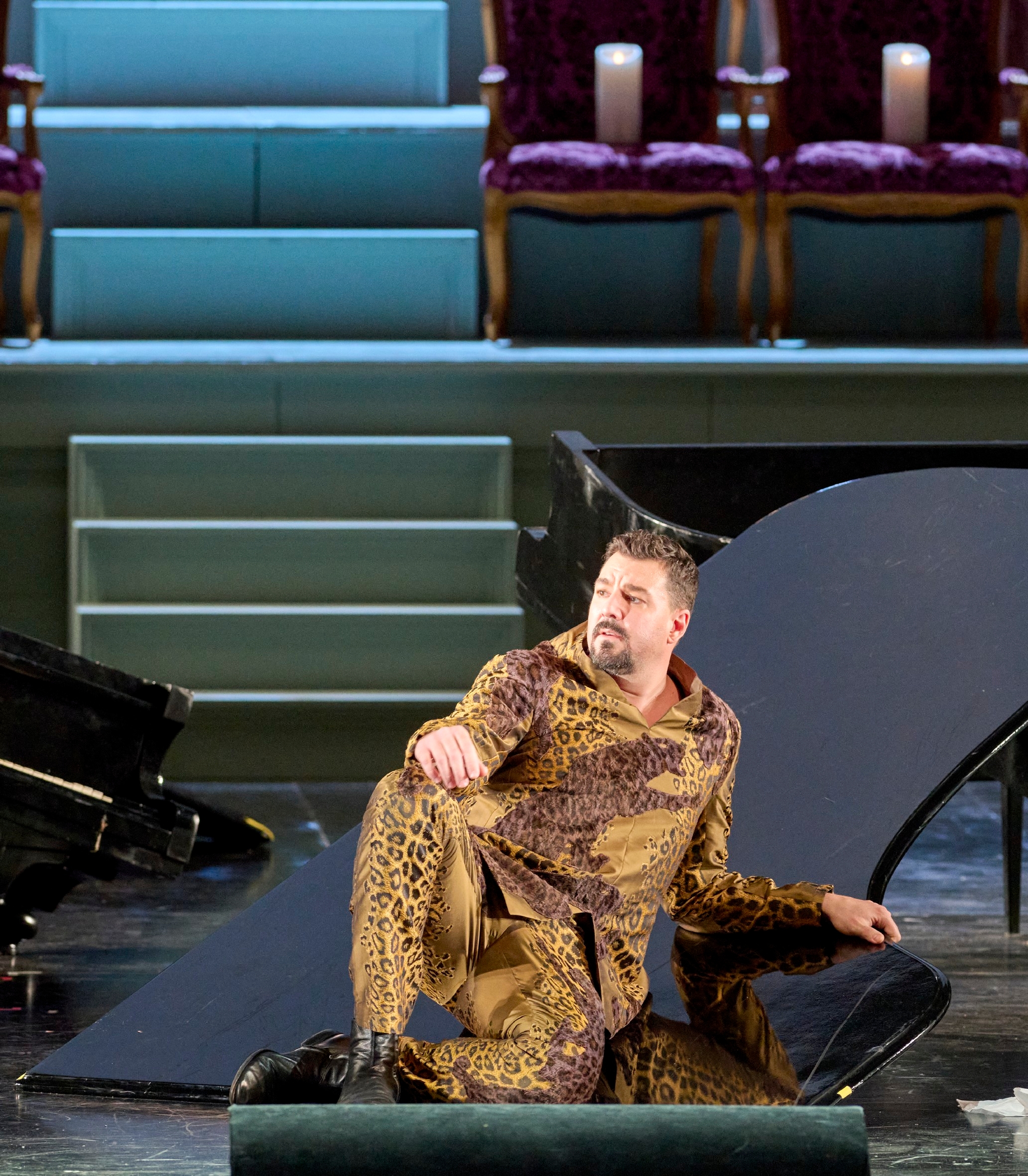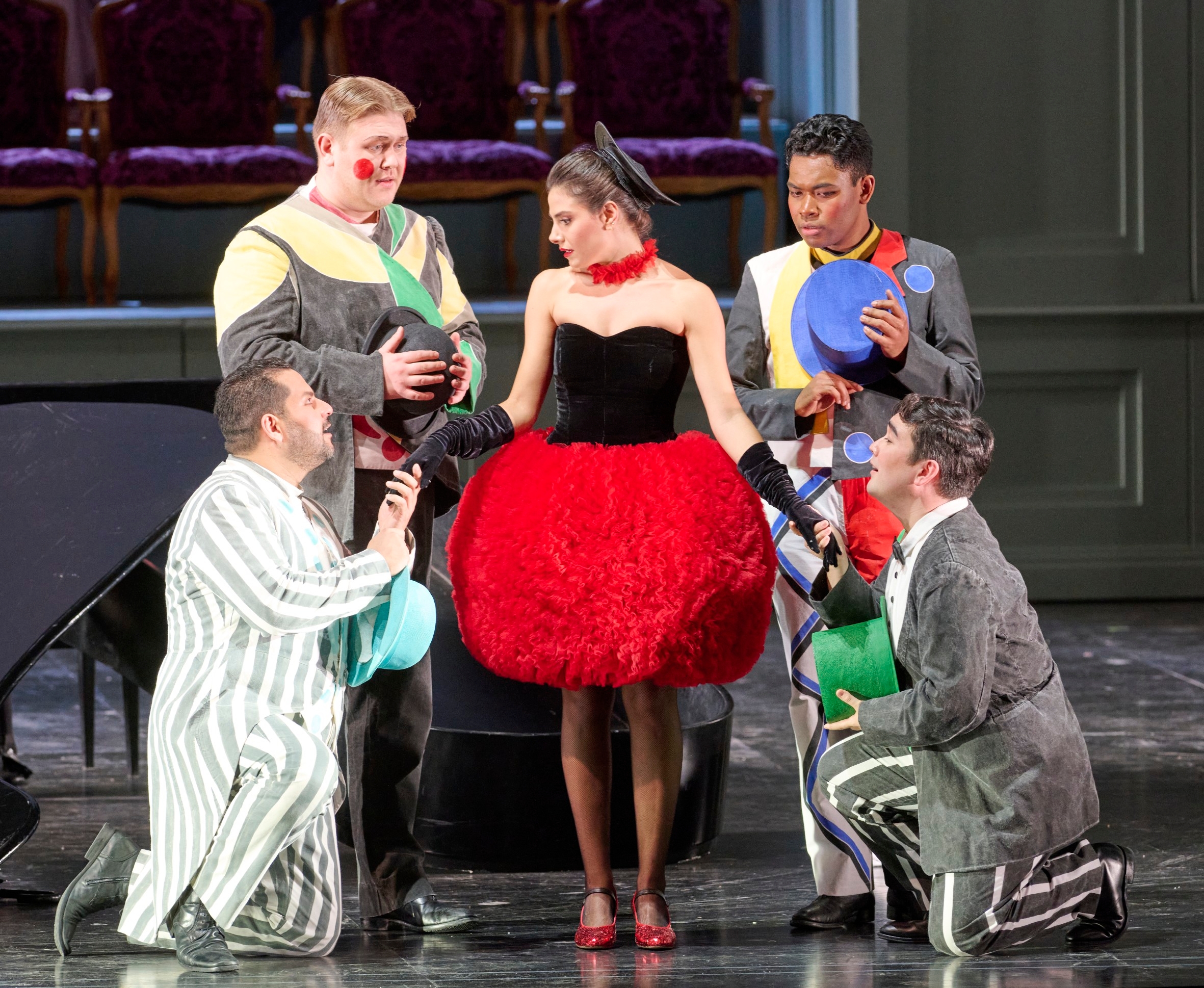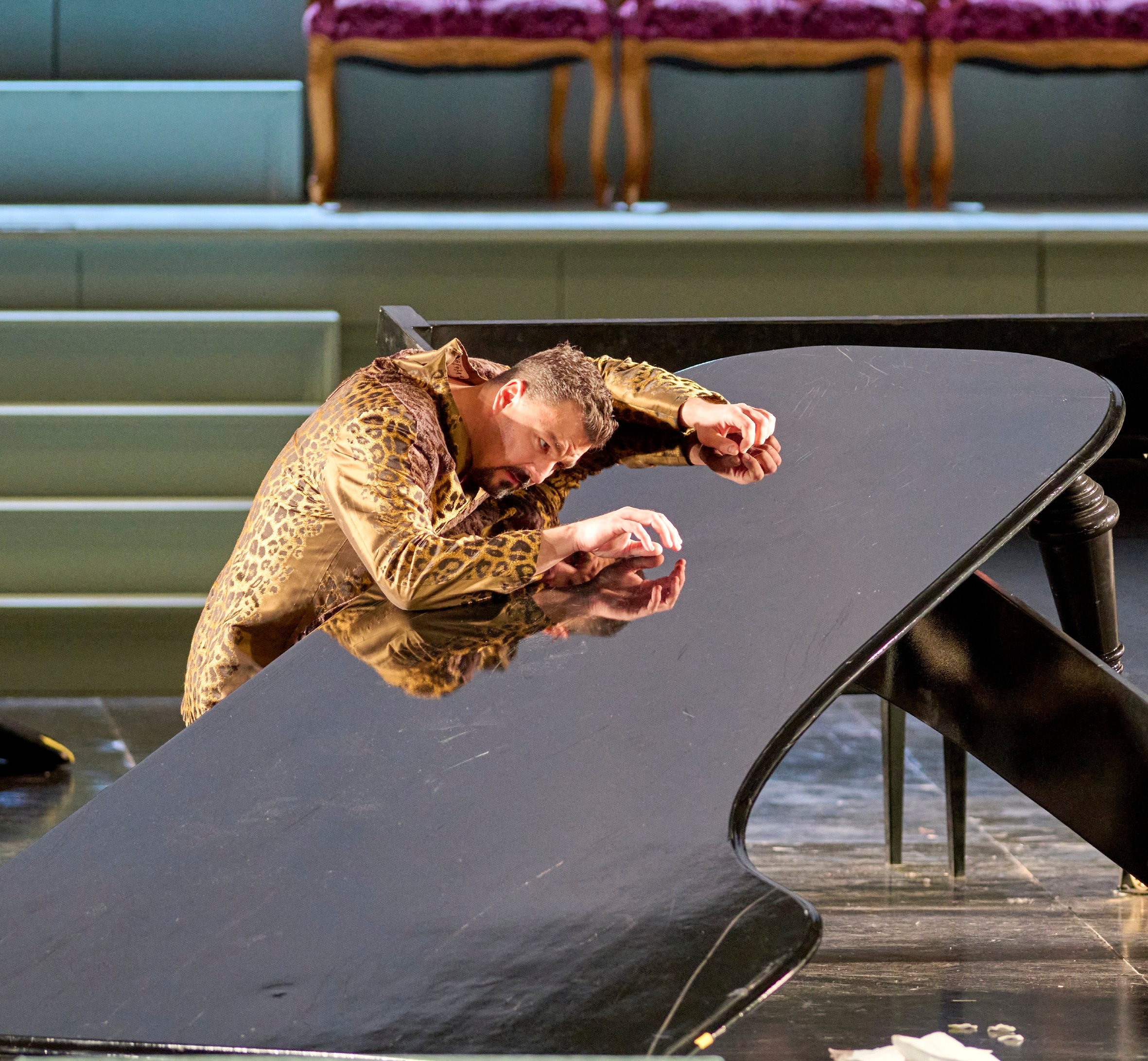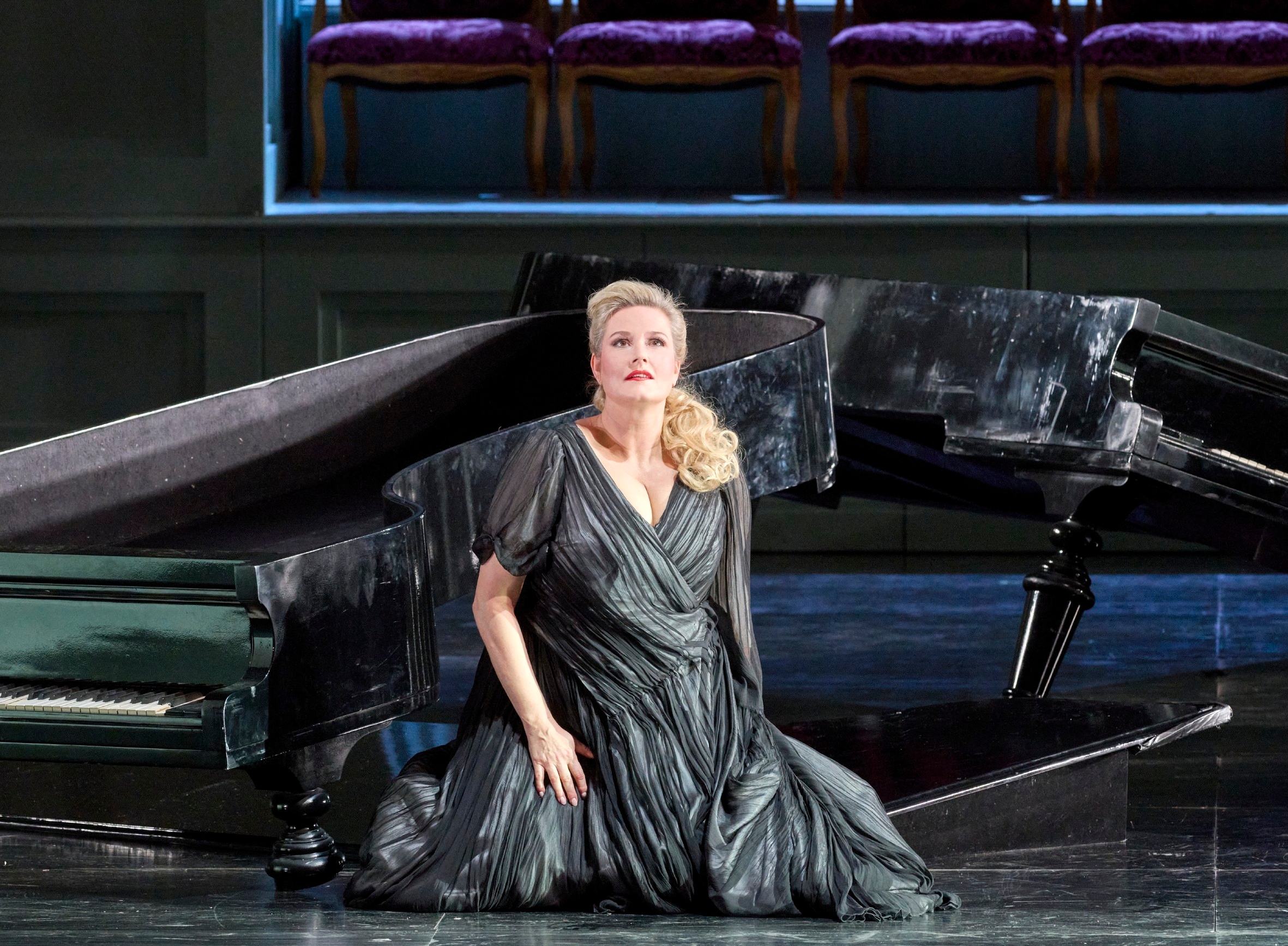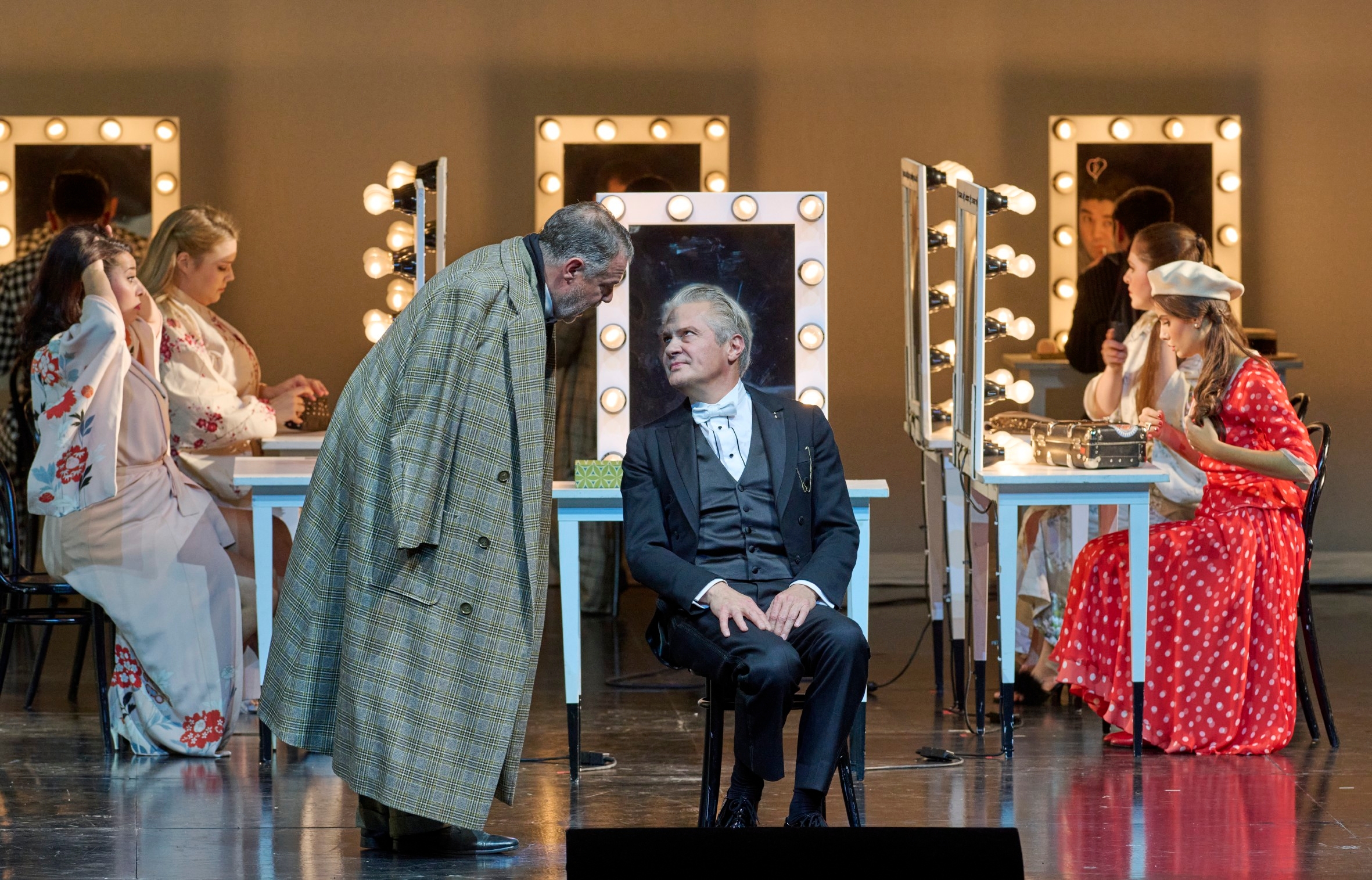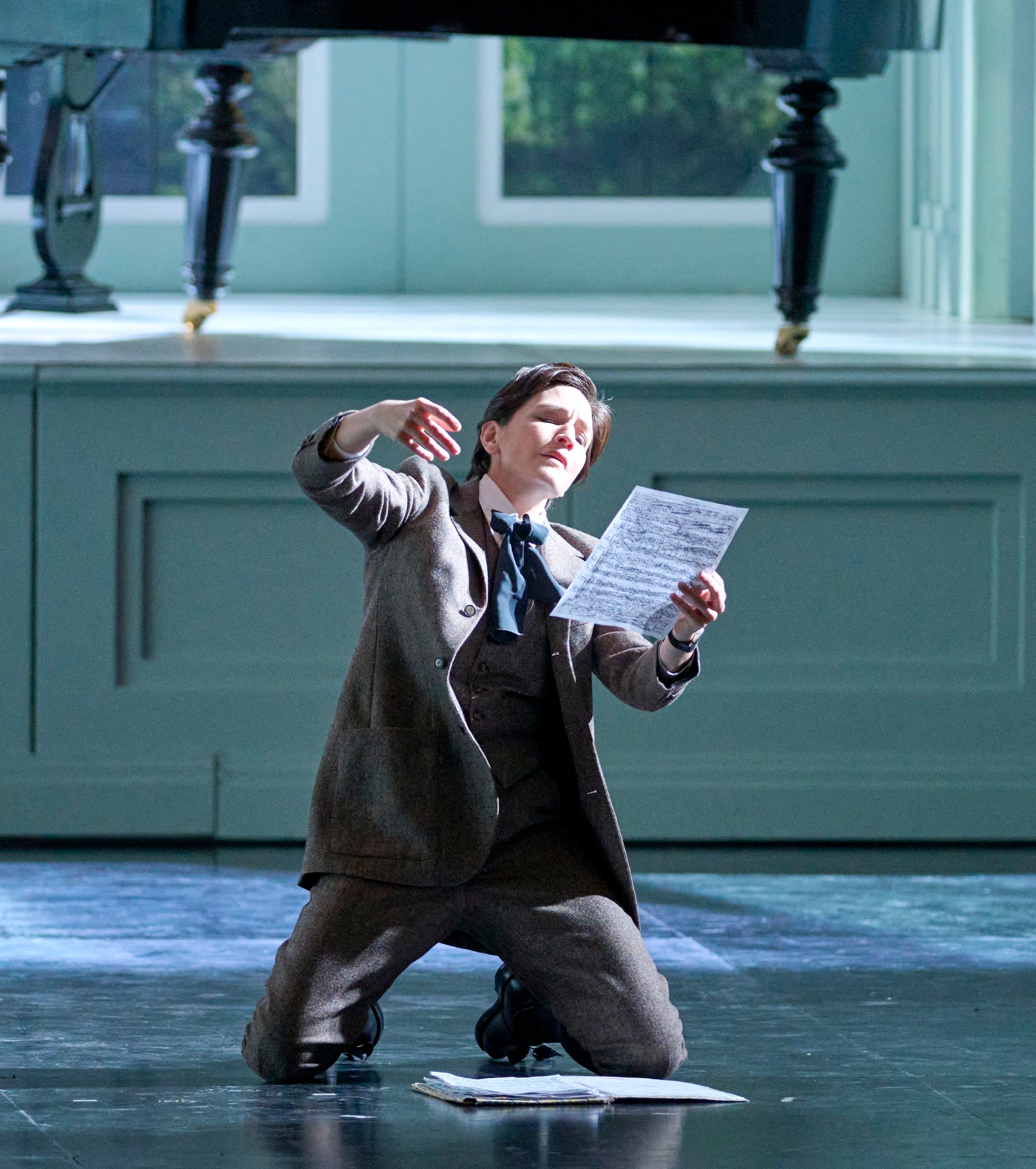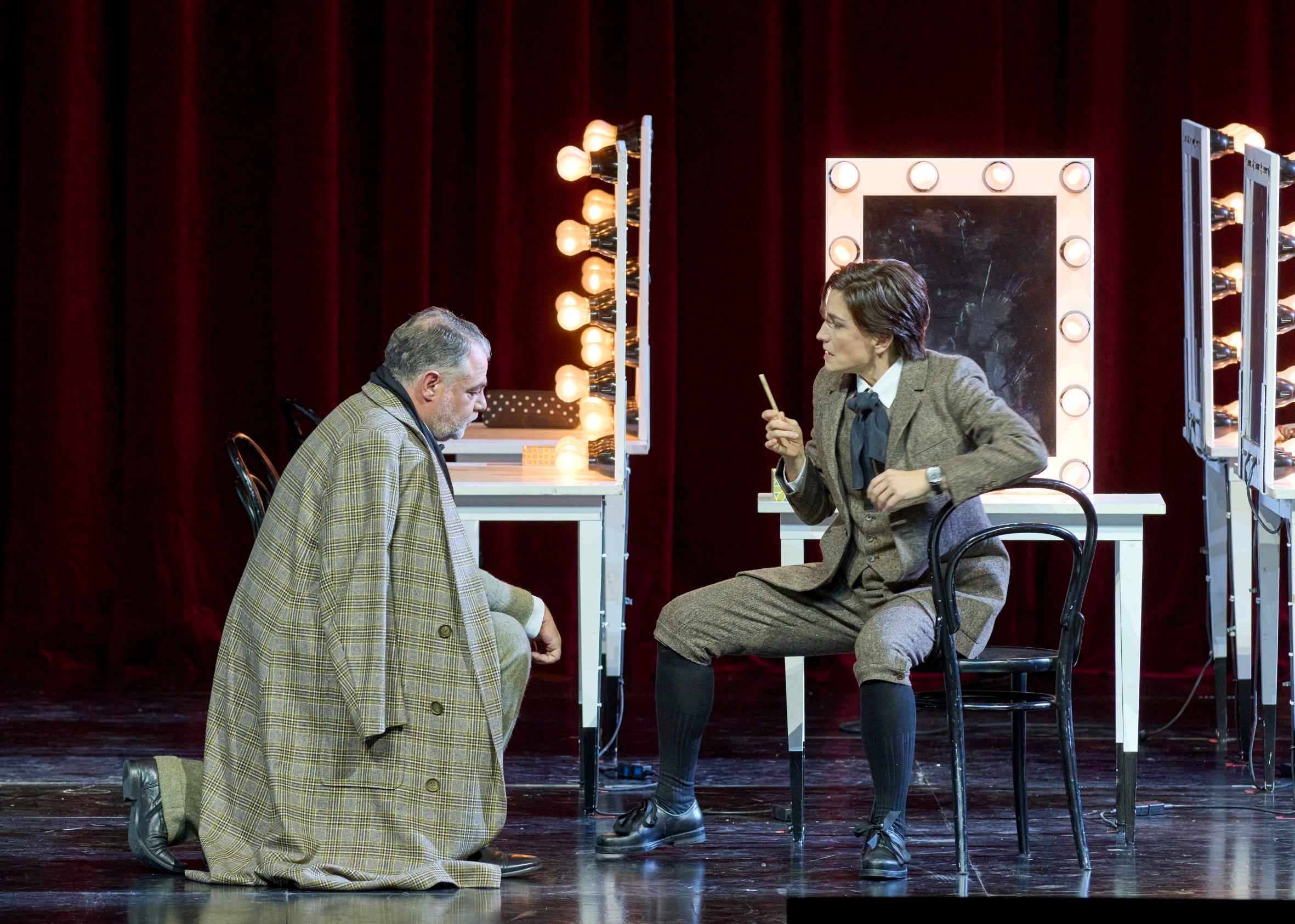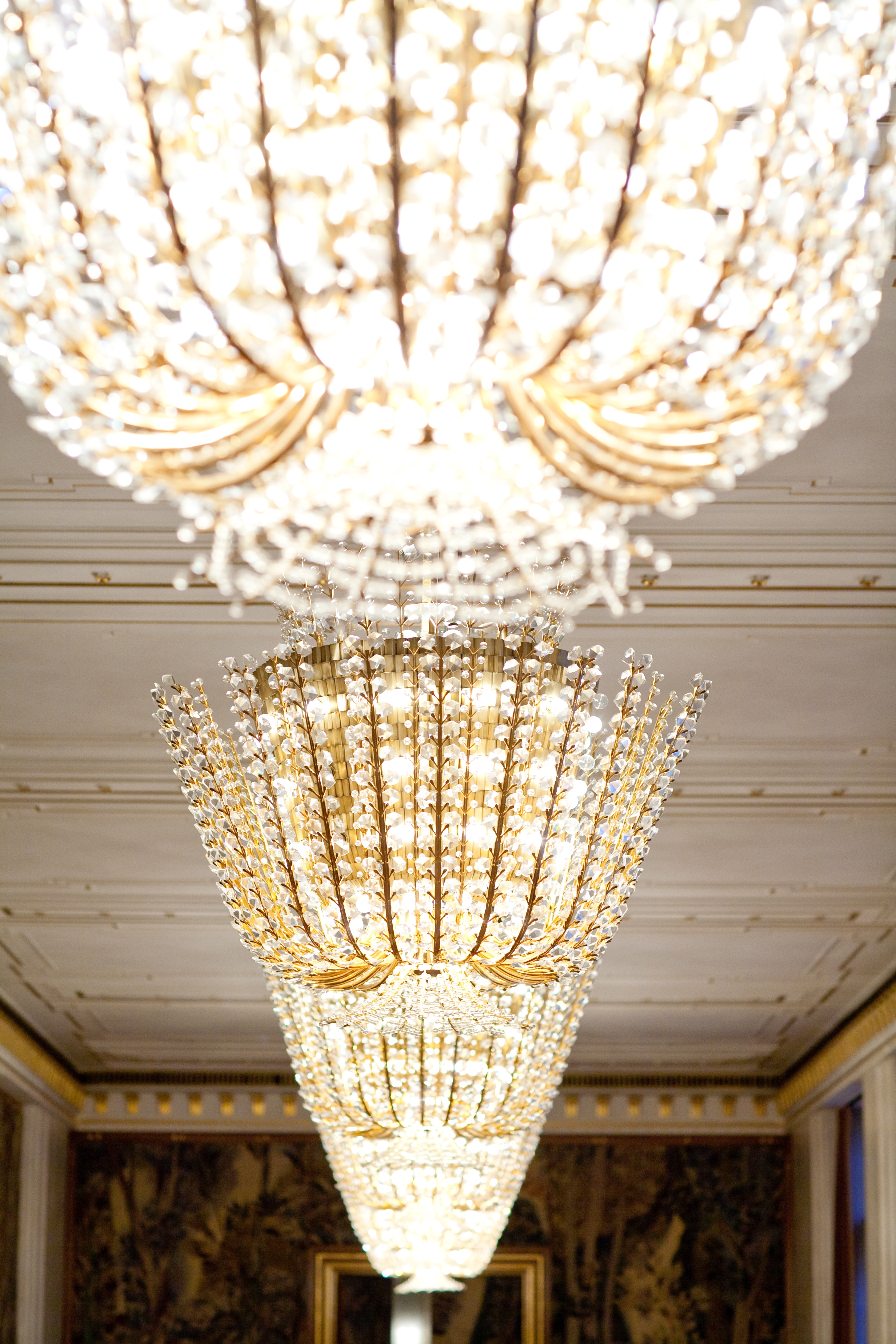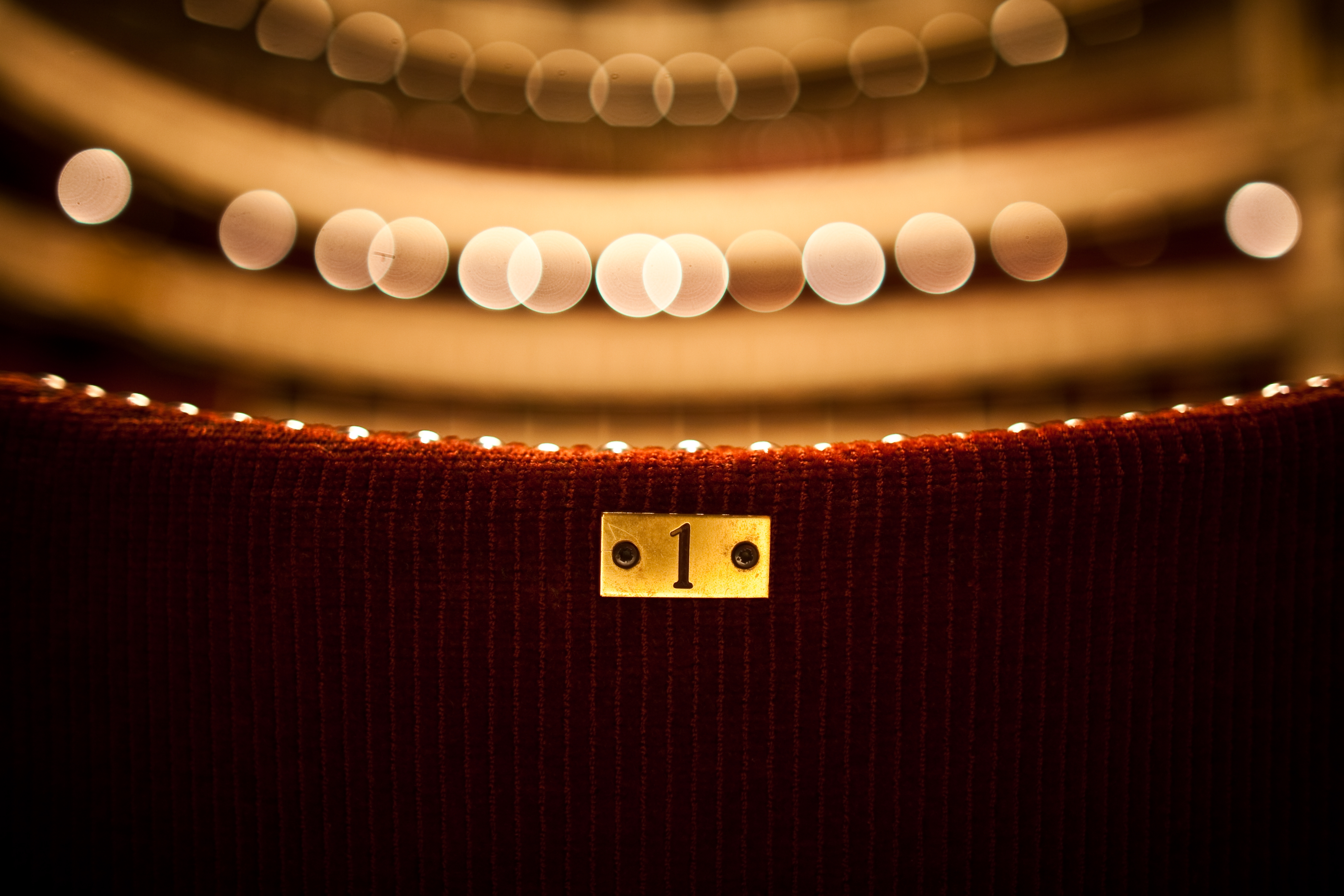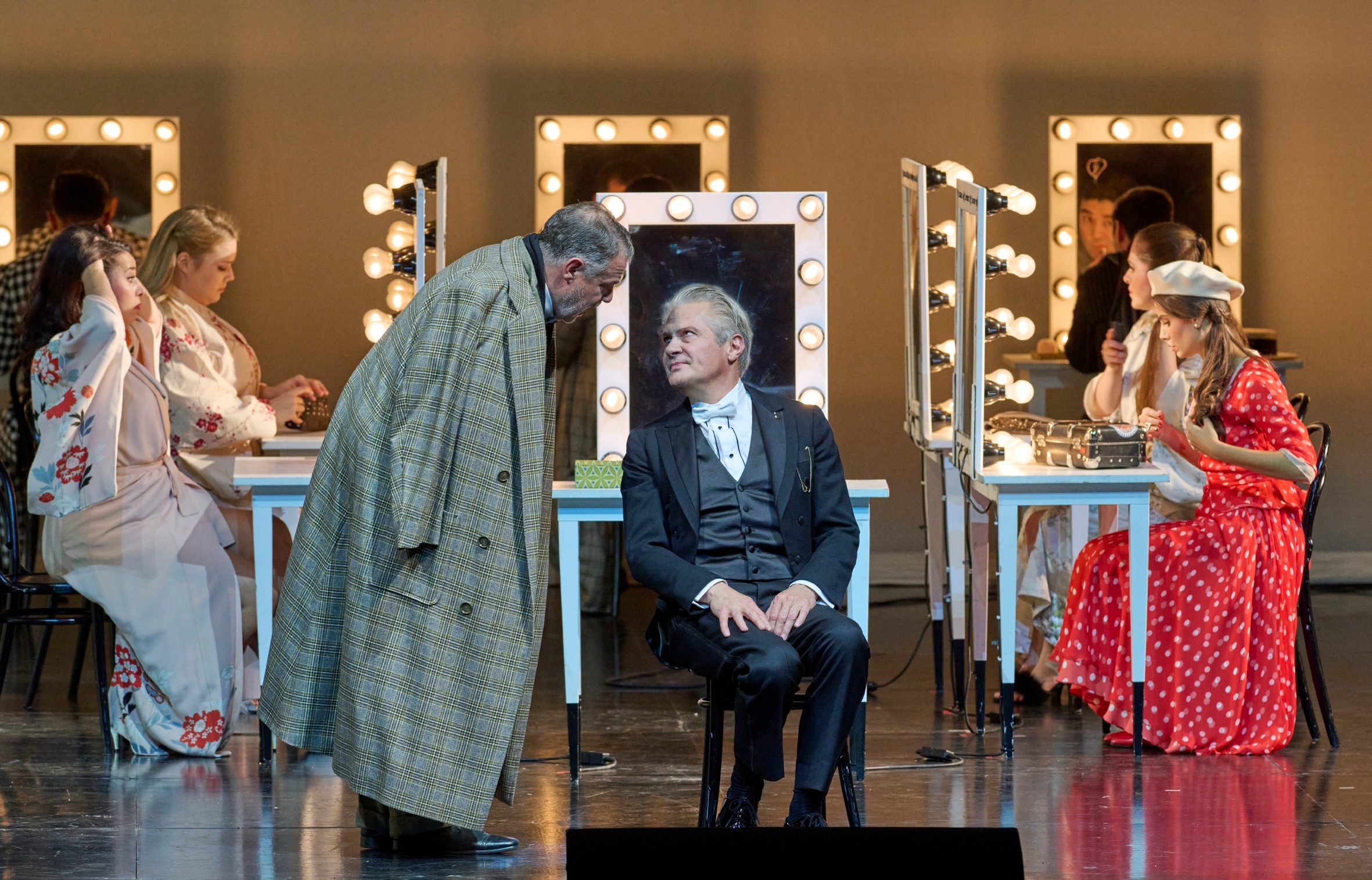
Short Summary
When the planned performance of his opera seria Ariadne auf Naxos in the palace of a Viennese nouveau riche is combined with the dance masquerade of an Italian comedy troupe, the young composer is initially in despair.
it is mainly thanks to the dancer Zerbinetta that he agrees. In the opera itself, we meet Ariadne, abandoned and desperate. Only the god Bacchus succeeds in bringing her back to life. In the mystical union of the two, there is still room for Zerbinetta's mockery: »Come the new god gone, devoted we are mute!«
Ariadne
auf Naxos
Storyline
The servants of the richest man in Vienna are busy setting the stage for a planned performance in their master's palace. Behind the scenes, the two hired troupes are making their preparations:
One is to perform the first work of a young composer, the opera Ariadne auf Naxos, the other a dance masquerade in the Italian buffo style. Even the mutual jealousy between the members of the two troupes causes emotions to run high.
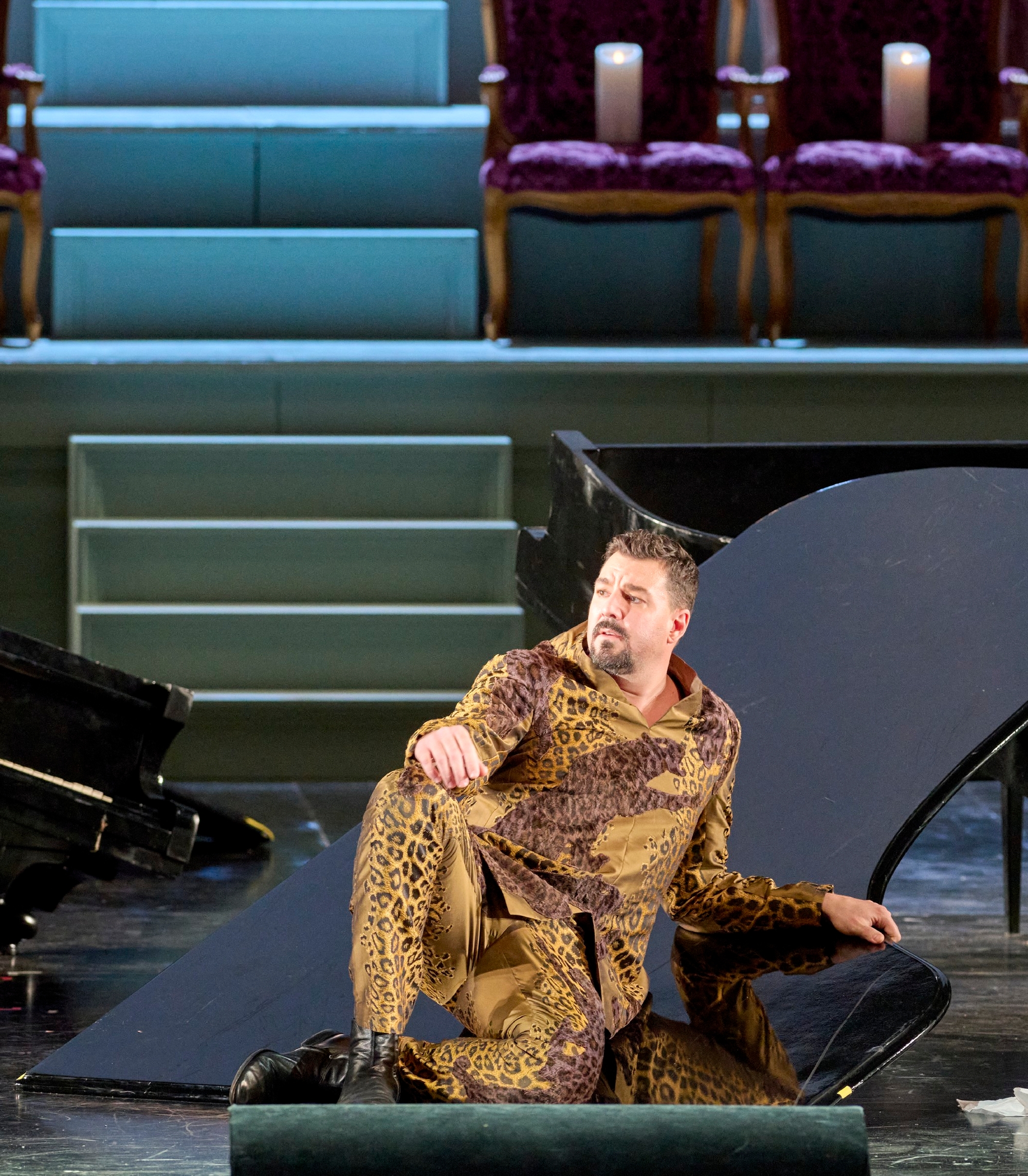
How much more so when the host, represented by his steward, announces an unexpected and unbelievable change to the program: At his request, the two stage plays are not to be presented to the invited guests one after the other, but simultaneously.
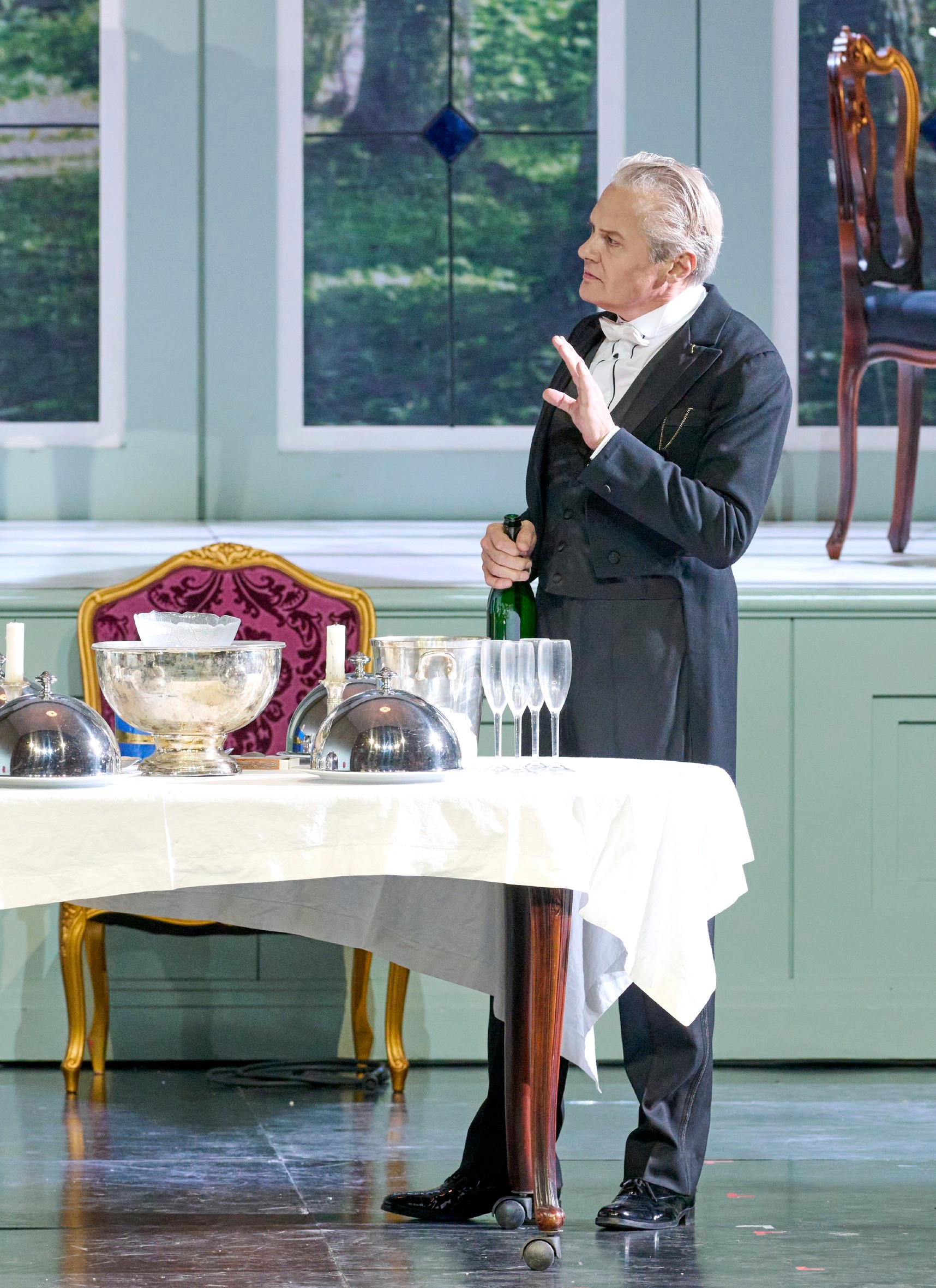
Deeply affected, the composer, who is concerned with the true realization of his artistic world view, wants to withdraw his creation and forgo his first public performance. But the practice-oriented music teacher and, above all, Zerbinetta, who is well versed in all the arts of seduction and knows how to trick the inexperienced young composer in no time at all, bring about a change of heart in him: with an emphatic hymn to the essence of music, the composer bows to reality and the instructions of his patron. The opera Ariadne auf Naxos is thus performed in the desired form, with interludes by an Italian comedy troupe.
Ariadne is waiting to die in front of a cave on the shores of the island of Naxos, having been abandoned by Theseus, her lover.
and so she no longer hears or pays attention to anything around her: not to the three nymphs, not to the comedians who want to cheer her up, not even to Zerbinetta, who in a breakneck aria advises the mourners from her rich experience not to shed a tear for the departed and to be open to a new love.
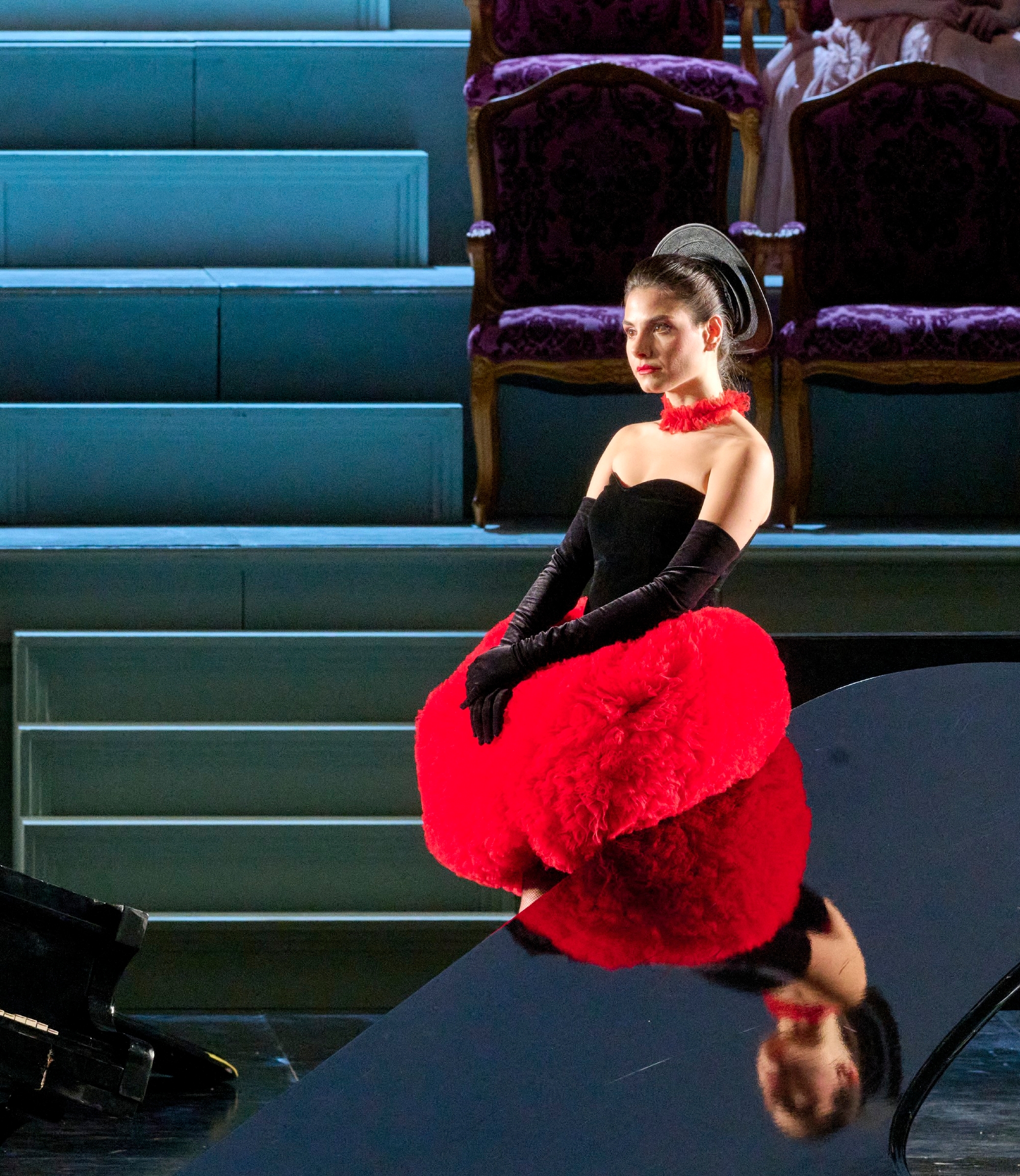
A radiant youth approaches from afar, Bacchus, the god of eternal renewal. He comes from the arms of the sorceress Circe, with whom he could not find what he was looking for. Ariadne, mistaking him for the messenger of death, goes to meet him and, without immediately realizing it, immediately burns with ecstatic devotion, which is reciprocated by the god. Transformed by the other and as if newly created, Ariadne and Bacchus can conclude the opera as a just-too-mystically united couple.
»Ariadne is about more than grieving widows or the abandoned. It is about transformation, about the dissolution of rigidities in art and in personal life. I believe that the opera has a hero and a heroine, a protagonist and an antagonist: the composer and Zerbinetta; and in the course of the plot, of course, you also grow fond of Ariadne. But regardless of the lack or lack of identification figures, the opera is a bit of a construct that has been through the editing mill too often and is not fully balanced dramaturgically. The prelude and the opera are not consistently interwoven, and one could rightly ask: »What is this actually about?«. As an audience member, you are lured onto the wrong track, believing that there will be chaos on stage in the second part when the two elements »opera seria« and »opera buffa« collide. But it doesn't really come to that,« says director Sven-Eric Bechtolf
In terms of opera history, Ariadne auf Naxos belongs to a genre that is usually referred to today as »meta-opera«. These are operas about operas, i.e. operas whose subject and genre is opera itself and the conventions of the work's creation. As a rule, these are satires such as L'opera seria (1769) by Leopold Gassmann. The text of such operas pokes fun at the usual practices of the opera business and its effects on the opera, exaggerating them to the point of grotesqueness in order to achieve comic effects. The composers proceed in the same way with the usual stylistic elements of opera seria and their performance practice by the singers. Strauss could not follow such a pattern for two reasons. Firstly, Hofmannstahl's text was so artificial that drastic musical comedy would have contradicted the text. And secondly, Strauss' penchant for subtle irony stood in the way of the merely bold use of satirical stylistic quotations. (Michael Walter)
In Greek mythology, Ariadne was the daughter of the Cretan king Minos (a son of Zeus) and Pasiphaë, herself the daughter of the sun god Helios. When the hero Theseus set out to kill the man-eating Minotaur, who lived in a labyrinth on Crete, Ariadne, Minotaur's half-sister, fell in love with him. She helped Theseus by giving him a thread, which he used to find his way out of the labyrinth after killing the Minotaur. Together with Theseus, Ariadne fled from Crete to Athens, but was left alone on the island of Naxos in her sleep - and despaired. There she was found by the god of fertility, Dionysus (Bacchus), a son of Zeus. Dionysus fell in love with Ariadne on Naxos and married her; as his wife, Ariadne gave birth to four sons. (From the 8th book of Ovid's Metamorphoses)
